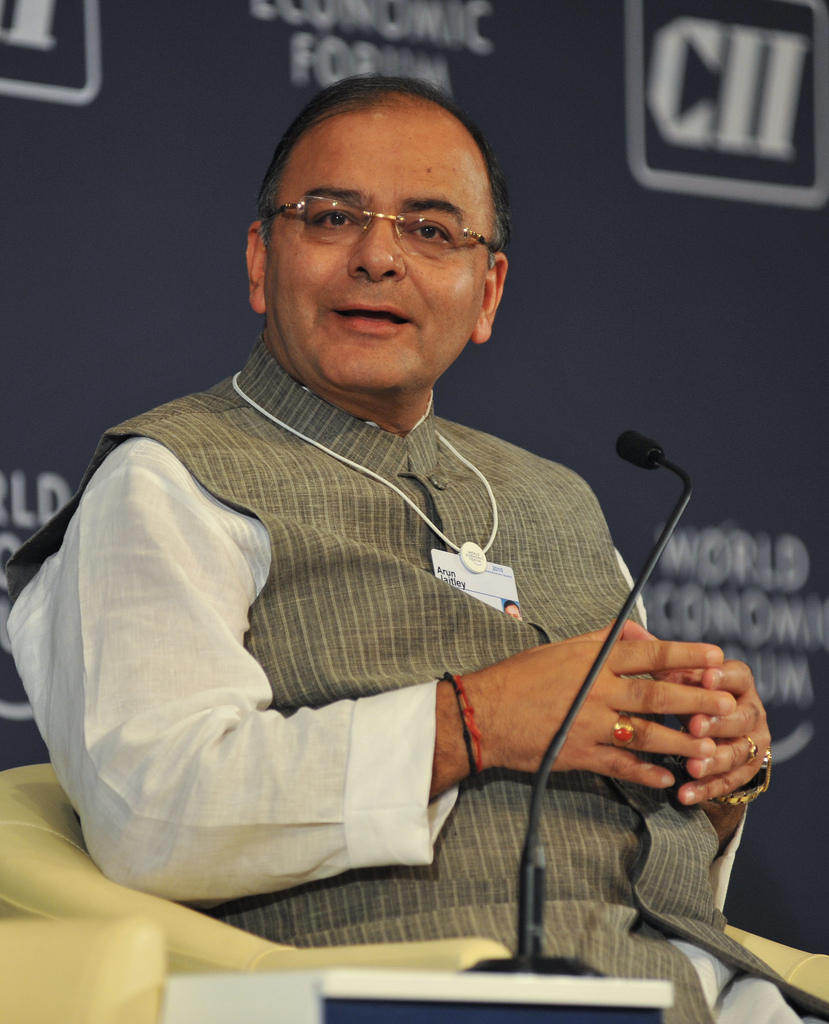In his budget speech, the finance minister Arun Jaitley came up with a slew of announcements for the farmers of this country. This wasn’t surprising given the fact that the country has seen two bad monsoons, leading to the agricultural growth collapsing to 0.5% over the last two years.
In 2015-2016, agriculture is expected to grow by 1.1%. This is an improvement over 2014-2015, when agriculture contracted by 0.2%. Nevertheless, it is much slower than the overall growth of 7.6% expected in 2015-2016.
As Jaitley said during the course of this speech: “We have a desire to provide socio-economic security to every Indian, especially the farmers, the poor and the vulnerable; we have a dream to see a more prosperous India; and a vision to ‘Transform India’.”
Nevertheless, Jaitley, like finance ministers and governments of the past, continues to molly coddle, the rich farmers. Agricultural income in India continues to be untaxed.
One of the core points of the Survey is about not enough Indians paying income tax.
As the Economic Survey released on February 26, points out: “In India today, roughly 5.5 percent of earning individuals are in the tax net. This statistic gives an idea of the gap that India needs to cover to become a full tax-paying democracy. Based on recent tax data…we estimate that about 15.5 percent of net national income excluding taxes (which is the national income accounts counterpart of the personal income accruing to households) was reported to the tax authorities as gross taxable income.”
This means that nearly 85% of the country is outside the tax net. One clear impact of this is that the government is not able to raise enough taxes as it could. “To give a sense of the magnitudes, controlling for both the level of economic development and democracy, India’s overall tax to GDP is about 5.4 percentage points less than that of comparable countries,” the Survey points out.
While, the government doesn’t collect enough taxes, the rich farmer has the best of all the worlds. He has access to free/subsidised water and electricity. He has access to free fertilizer and benefits the most from minimum support price that the government offers on the purchase of rice and wheat. In fact, the Economic Survey points out that the implicit subsidy on electricity is Rs 37,170 crore.
The rich farmers benefit the most from cheap or free electricity. As Swaminathan Aiyar wrote in a recent column in The Times of India: “During a Punjab visit, I was told of one Jat farmer with 150 tubewells, paying zero electricity charges.”
In fact, as the Economic Survey points out: “India uses 2 to 4 times more water to produce a unit of major food crop than does China and Brazil.” This is primarily because of free or cheap electricity leading to over-pumping of water.
As the Economic Survey points out: “It has long been recognized that a key factor undermining the efficient use of water is subsidies on power for agriculture that, apart from its benefits towards farmers, incentivises wasteful use of water and hasten the decline of water tables. According to an analysis by National Aeronautics and Space Administration (NASA)5 , India’s water tables are declining at a rate of 0.3 meters per year. Between 2002 and 2008, the country consumed more than 109 cubic kilometers of groundwater, double the capacity of India’s largest surface water reservoir, the Upper Wainganga.”
This is clearly not a good thing.
And on top of this rich farmers do not pay any income tax. A lot of this money makes it into real estate, especially on the edges of cities and towns, making it unaffordable for others.
Further, if the government hopes to up its tax collections significantly in the years to come, the rich farmer needs to be brought under the tax net. As the Economic Survey pointed out: “The tax exemptions which often amount to redistribution towards the richer private sector will also need to be reviewed and phased out. And, reasonable taxation of the better-off, regardless of where they get their income from—industry, services, real estate, or agriculture–will also help build legitimacy of India.”
Jaitley like his predecessors chose to do nothing about this. This is not surprising given that taxing the rich farmer remains a political hot-potato. The governments over the last 25 years could not have done it, given that they lacked the majority to do so.
The Modi government has the majority in the Lok Sabha, but given the fractious relationship it shares with the opposition, any significant decision is likely to attract a lot of protest. Plus there are elections in Punjab coming up, where Modi’s Bhartiya Janata Party (BJP) is in alliance with the Akali Dal, which is essentially a party supported by rich farmers.
Finance ministers are not known to listen to the advice provided in the Economic Survey. Nevertheless, if Jaitley had taken on this advice, the whole country would have been better-off in the process.
(Vivek Kaul is the author of the Easy Money trilogy. He tweets @kaul_vivek)
The column originally appeared on Firstpost on February 29, 2016
